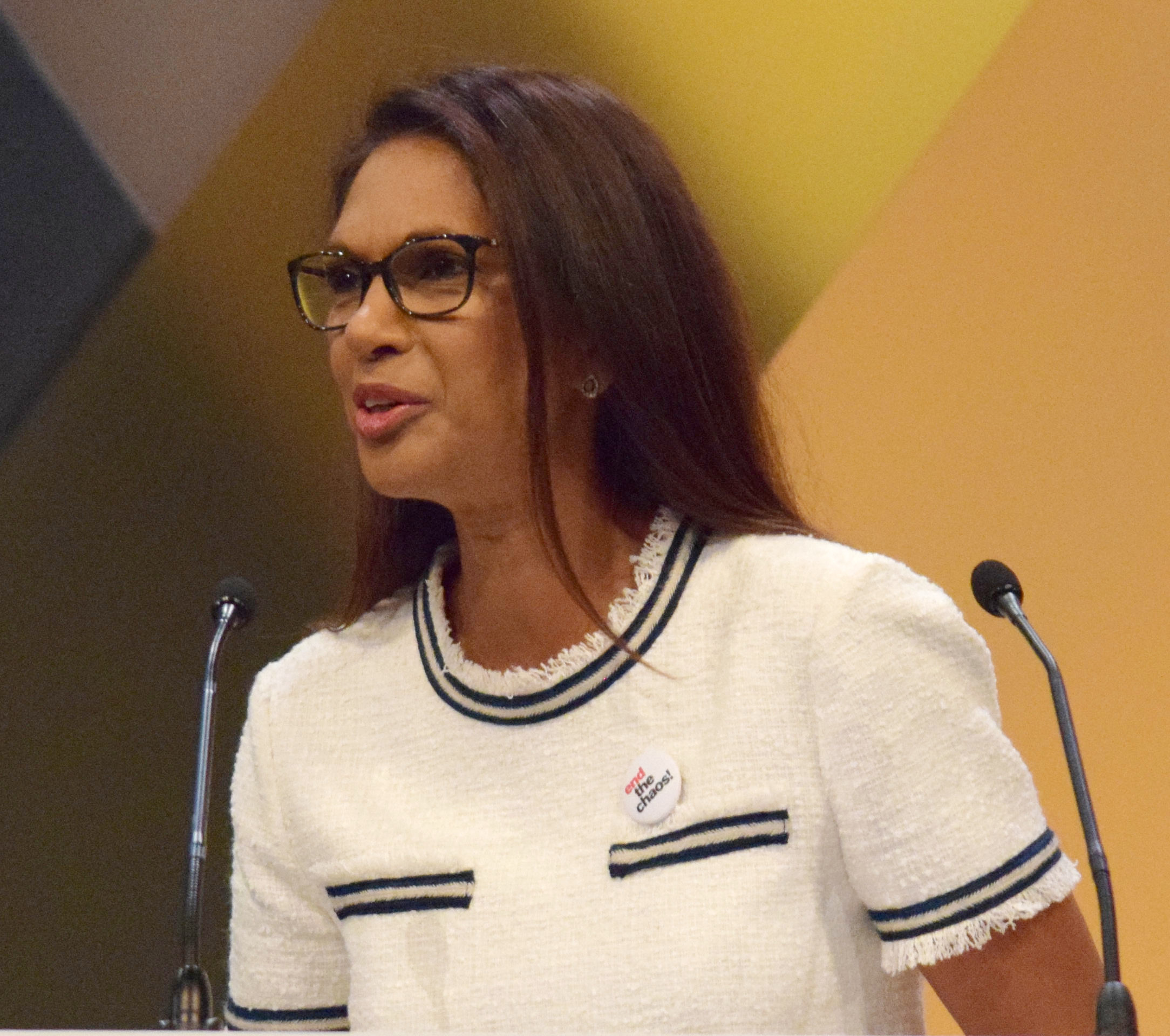
A collaboration of the Politics Society and Law Society at the University of Exeter saw renowned activist, Gina Miller, lead a rich conversation concerning salient constitutional and political issues in the UK.
Gina Miller is not a lawyer by trade, but a businesswoman and campaigner who took the British government – under both Theresa May and Boris Johnson – to the Supreme Court over Brexit and won, twice. Her landmark cases, R (Miller) v Secretary of State for Exiting the European Union (2017) and R (Miller) v The Prime Minister (2019), highlighted the irrefutable necessity of checking government power, specifically in determining whether a breach of this power has occurred.
The first case in 2017 questioned whether the government could trigger article 50 without a prior act of Parliament, and additionally whether the devolved administrations of Scotland, Wales and Northern Ireland should be consulted. In the talk, Miller described the case as black and white: The Prime Minister could not bypass Parliament and claim the royal prerogative. Moreover, Miller noted that prerogative powers are not written law, and thus the court can test to see if its uses are within the bounds of the law.
The second Miller case judgement by the Supreme Court found that Johnson’s advice to the Queen to prorogue Parliament was unlawful. In the talk, Miller mentioned how she hoped the case would never reach court. Despite the government’s protestations that they would not prorogue Parliament, merely a day later their tune had changed, and the announcement was made that Parliament would be prorogued. Miller, having a distrust for their words the previous day, continued to fully prepare the case in the eventuality it would reach court. Miller recounted how they filed at 4:30pm the day of the announcement, without a fee agreement, which could have left her in financial ruin, had the case lost.
Her activism comes from being “fearful about what happens if you don’t speak up”. Her initial thoughts mentioned a daughter with special needs, which led her to work on legislation concerning this. In addition, she described being a domestic abuse survivor – hence her ambition to work on domestic violence legislation. A passionate and devoted campaigner, Miller reiterated that activism doesn’t have to be something big and comes from the desire to make someone’s life better; ultimately, we have the power to make change happen.
Interestingly, Miller described herself as a responsible capitalist. She sees the importance of companies seeking more than profit. For Miller, businesses should think about people, profit and the planet. In this view, companies have a responsibility to take care of those who enable their success. If the constant and only pursuit of a company is profit, then the fallout is inequality and thus, an unfair society. Furthermore, Miller discussed the social contract, whereby we – as the people – have agreed to pay taxes to the government upon receipt of a service (for instance public services or welfare). She then questioned why in a modern and developed society 169,000 charities exist in the UK. Her solution? Hold politicians and governments to account and highlight the deficit in support from the state which charities aim to make up.
When I asked what final pieces of advice she would give to students seeking a successful and rewarding career – whilst remaining humble – her response was a refreshing one. Particularly as a woman, and a woman of an ethnic minority, she stressed the importance of deciding what you want in your career. Whether this be working in a high-pressure, high-earning environment allowing you to delve into philanthropy later on in life. Or, indeed, whether you opt for a rewarding and challenging career in activism. Her second piece of advice is to do something which you makes you get up every day, and to remember that when making career and personal choices. Finally, her last piece of advice is to have a passion. Something to counter the pressures and demands of a career in law. For Miller, this is dancing.
A special thanks to Gina Miller for taking part in this talk.



Average Rating